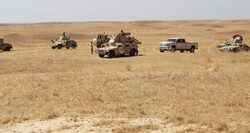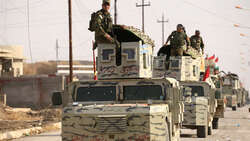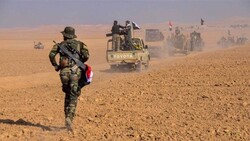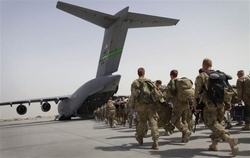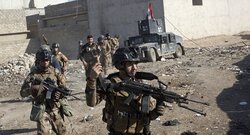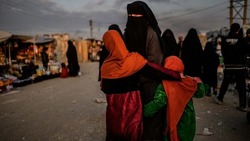DW: the end of the US combat mission in Iraq: A meaningful change?
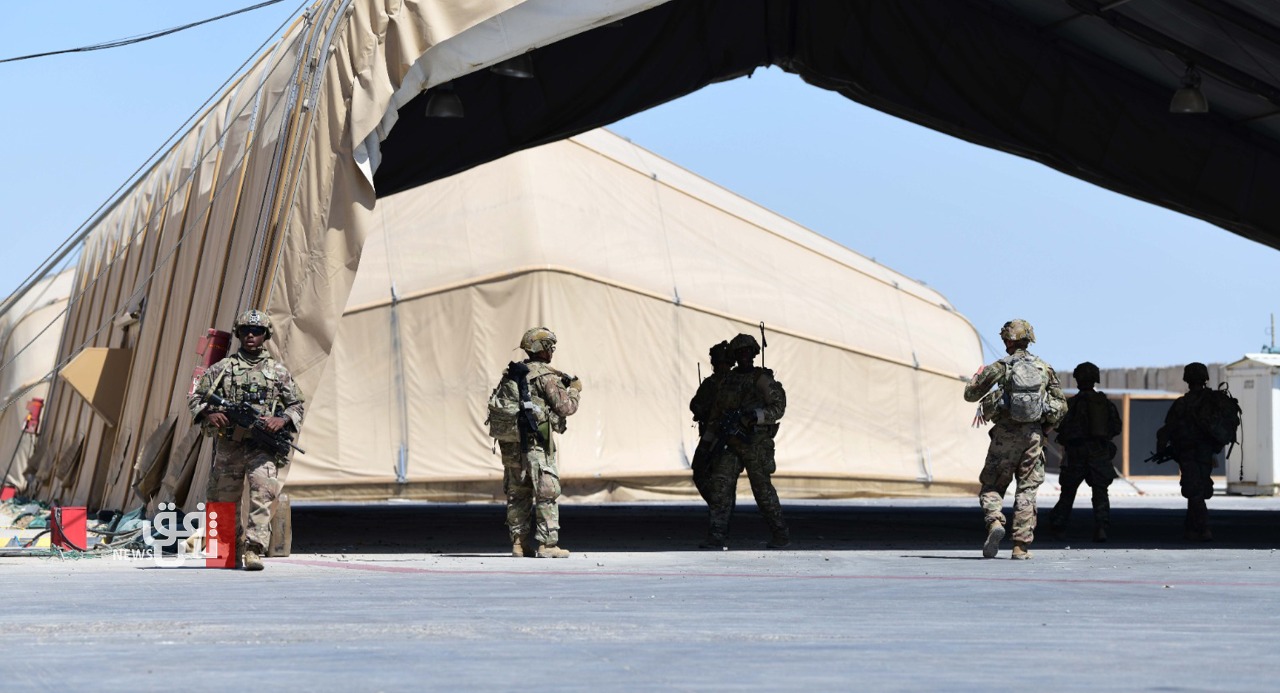
Shafaq News / Earlier this month, the US military announced it had ended its combat role in Iraq.
The move comes just a few months after a July meeting between Iraqi Prime Minister Mustafa al-Kadhimi and US President Joe Biden. Afterwards, the leaders issued a statement announcing that "there will be no US forces with a combat role in Iraq by December 31, 2021."
Experts said the two had come to this agreement in order to ease pressure on al-Kadhimi's government. It was being targeted by Iran-backed militias known as the Popular Mobilization Forces (PMF) in Iraq, who are opposed to any US presence in the country at all. The same groups are suspected of being behind ongoing drone and rocket attacks on US logistics convoys and bases as well as an assassination attempt on al-Kadhimi himself.
The plan to change the status of US troops was completed ahead of schedule. On December 9, Iraq's national security adviser Qasim al-Araji announced that the transition to a mission to "advise, assist and enable" was now complete.
Most of the US troops in Iraq are there as part of the International Coalition for Operation Inherent Resolve, whose aim is to fight the extremist group known as the "Islamic State" (IS).
Despite the fanfare with which they were announced, the changes are not huge in a physical sense and are certainly far from the wholesale withdrawal seen in Afghanistan recently.
The US invaded Iraq in 2003 looking for weapons of mass destruction, and the number of American soldiers in the country has steadily decreased since then, from a peak of around 160,000 in 2008. The situation has evolved from having the American military as an invading force — welcomed by some Iraqis, despised by others — to the establishment of a series of agreements between the US and Iraqi governments that allowed troops to remain under certain conditions.
In 2011, under President Barack Obama, these agreements saw US troop numbers decrease. In 2014, US troops returned to Iraq again, at the country's request, to lead an international coalition against the "Islamic State" group, which had taken control of large parts of northern Iraq. Since the Iraqi government officially declared victory over IS in 2017, troop numbers have fallen again.
Today, there are around 2,500 US soldiers in Iraq, along with about 4,500 Department of Defense contractors. There are also around 1,000 soldiers from the other coalition countries stationed in Iraq. About 130 are from Germany.
Even after the recently announced transition, US troop numbers are unlikely to change much, US Department of Defense spokesperson John Kirby confirmed at a press conference earlier this month. "This is a change in mission, not necessarily a change in physical posture," Kirby told journalists. It was a "natural evolution" based on agreements made with the Iraqi government and work that had already been going on for months, he explained.
There wasn't going to be any sort of ceremony to celebrate the transition, Kirby added, and there wasn't currently any end date for the new training mission.
"The US has been in a non-combat capacity in Iraq for some time now, if not a number of years," Ranj Alaaldin, a non-resident fellow at the Washington-based think tank, Brookings Institute's foreign policy program, said recently. Alaaldin pointed out that announcements like this have been made several times already.
But there have been some changes, and these have been ongoing. US troops pulled out of eight bases that they thought might be vulnerable to attack by the PMF, Caroline Rose, a senior analyst at the Washinton-based think tank, Newlines Institute, told DW: "We saw a series of base transfers, but they were kept quite quiet."
According to a November report to the US Congress on the mission in Iraq, one command post was moved from Iraq to Kuwait in November and another was recently downgraded in terms of seniority in military leadership.
Some US contractors, such as those involved in maintaining Iraq's fleet of F-16 fighter jets, have been relocated and are now working remotely. Most Americans are now based in either Baghdad or the northern city of Erbil. Two thousand military vehicles were recently handed to local staff, and US funding for some aspects of the military cooperation has been gradually decreased; the Iraqi government is expected to take these costs over eventually.
The report prepared by the US military also noted that of 426 anti-IS group operations carried out by Iraqi counterterrorism forces between July and September, only 13 involved a partnership with coalition forces. The international coalition also conducted fewer airstrikes against IS group targets in those months than it previously had.
The report also suggested that the US' rapid withdrawal from Afghanistan had an impact on how quickly Iraqi officers were moving to become more independent.
"In practical terms, we still need US forces here, particularly when it comes to air cover and combat aircraft," a senior source inside the Iraqi government recently told DW; they had to remain anonymous as they did not have permission to speak to media.
"The Iraqi air force is comparatively weak, and if it wasn't for the US Air Force, the country would be far more vulnerable to external drone attacks, and it would also have difficulty mounting aerial attacks on the IS group," the source said. "The Iraqi military also needs the US' intelligence on the IS terrorists."
The report to US Congress confirmed this several times. For example, it said, "[US] aircrafts' better sensors … allow them to fly at higher altitudes. Iraqi [planes] fly at around 10,000 feet during their missions, potentially alerting surveilled targets."
US planes are likely to continue to fly sorties against IS, as well as undertake surveillance.
In other ways, the change in status of US troops is indicative of the ongoing change in US policy toward Iraq, especially when compared with the Trump administration, Brookings Institute analyst Alaaldin said. "With this current [Biden] administration, the Iraqis are hoping for a more delicate, more moderate approach to the country, and understanding that the security climate in Iraq is tied heavily to the domestic political dynamics in Iraq," Alaaldin argued.
While it is an important partner in Iraq, helping to balance internal and external political forces, the US cannot solve all of Iraq's complex and pressing problems, Sarhang Hamasaeed, director of Middle East Programs at the Institute of Peace in Washington, wrote in a July analysis. Some of the country's biggest concerns right now are economic, Hamasaeed explained.
"Even if it may be more limited than what the Iraqis want, an Iraq-centric policy may evolve under the Biden administration that's not seeing Iraq purely through the lens of Iran and IS issues," he argued.
"I think that the [IS group] will always play a role in US policy in Iraq, as will the quiet understanding that US troops provide a counterweight to Iran," Rose, the Newlines Institute analyst, concluded. She added that there had been a recent and worrying uptick in extremist activity. "But the other aim is capacity building in areas like law and order to ensure that Iraq doesn't devolve into a power vacuum, a situation that the IS group could exploit."
(DW)
